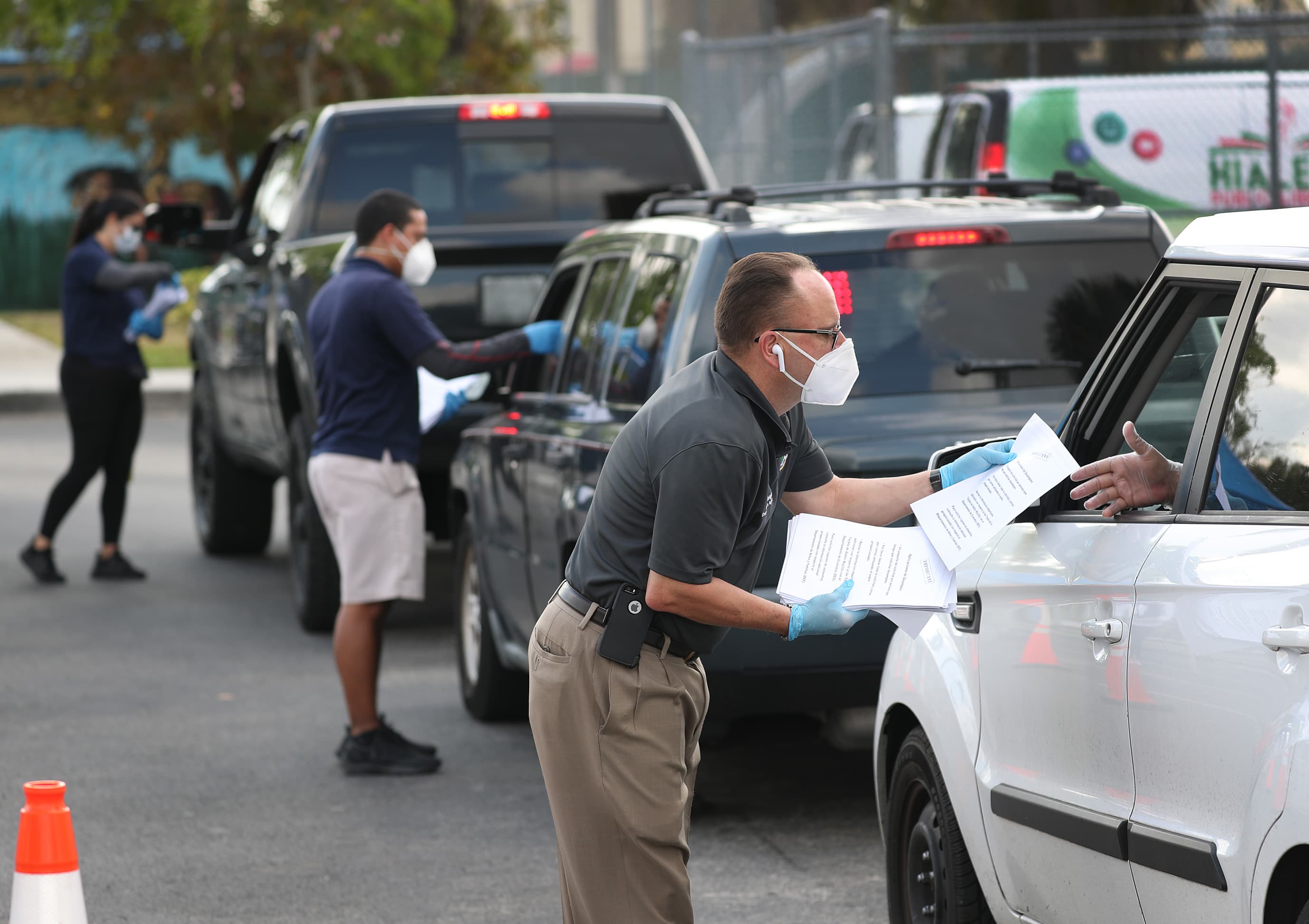It took only five weeks for the U.S. economy to wipe out all the job gains it added over the last 11 years.
Coronavirus-induced business closures throughout the U.S. have fueled the number of Americans applying for state unemployment benefits. Last week, new jobless claims totaled 4.427 million, the Labor Department reported Thursday.
Combined with the four prior jobless claims reports, the number of Americans who have filed for unemployment over the previous five weeks is 26.45 million. That number exceeds the 22.442 million positions added to nonfarm payrolls since November 2009, when the U.S. economy began to add jobs back to the economy after the Great Recession.
"We are facing an unforeseen enemy and today's report continues to show that these are challenging times for many Americans who want to get back to work," Judd Deere, a White House spokesman, told CNBC.
"Because of President Trump's leadership and the American people's commitment to slow the spread, we are on a data-driven, responsible path to opening up America again," he added. "As we begin the phased approach, the Administration continues to move quickly to provide the benefits under the CARES Act that workers, families, and small businesses across the country need."
The swoon in job losses is unprecedented and wiped out more than a decade's worth of gains in just five weeks.
"We're still talking about workers filing for unemployment benefits in the millions — so it isn't 'good news' per se," wrote Ian Lyngen, head of rates strategy at BMO Capital Markets.
Investors won't receive the official look at the U.S. unemployment rate for the month of April until May 8. But the Labor Department's latest nonfarm payrolls report for March showed droves of layoffs at restaurants and bars, which have been closed by stay-at-home directives.
The March nonfarm report showed payrolls plunged by 701,000 last month, marking the first decline since 2010 and the worst fall since March 2009. The unemployment rate jumped nearly a full percentage point to 4.4% from 3.5%.
Still, Peter Boockvar, chief investment officer at Bleakley Advisory Group, said he's optimistic that the dizzying pace of jobless claims may slow as some states start to ease stay-at-home orders and business closures.
"As the economy begins to reopen in May, whether the local shop or the factories that are lining up to do so in coming weeks, we're likely seeing the peak in claims as people get back to work," he wrote in an email. "Again, the pace at which they will is the question."


